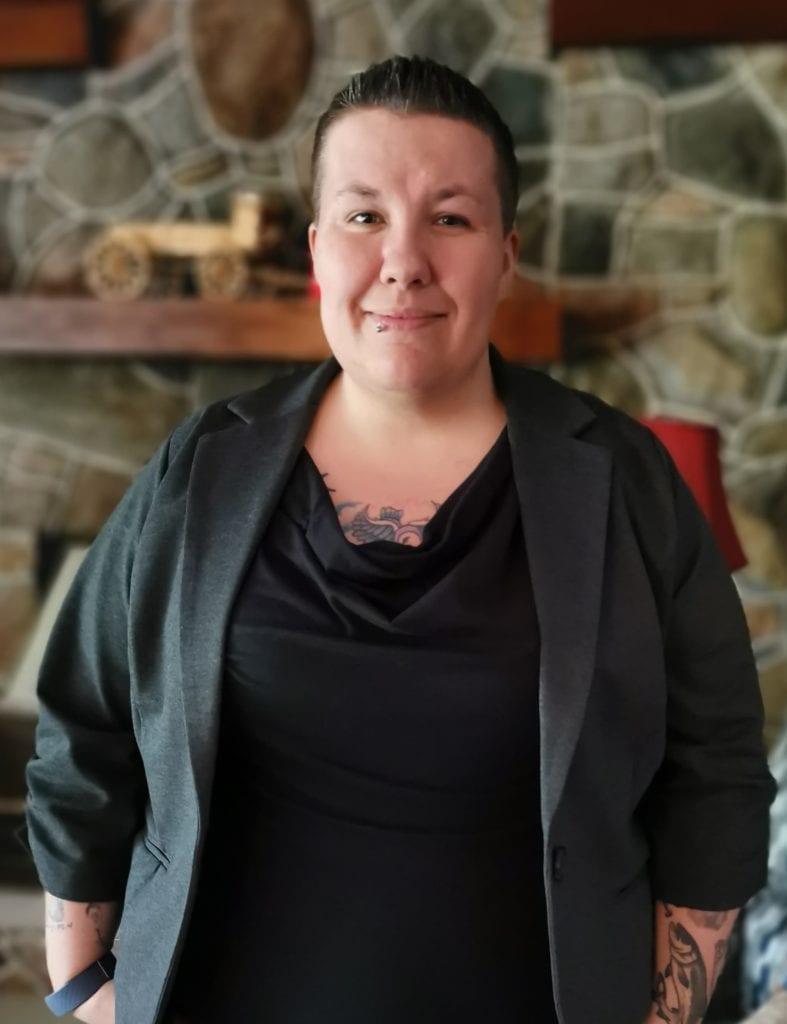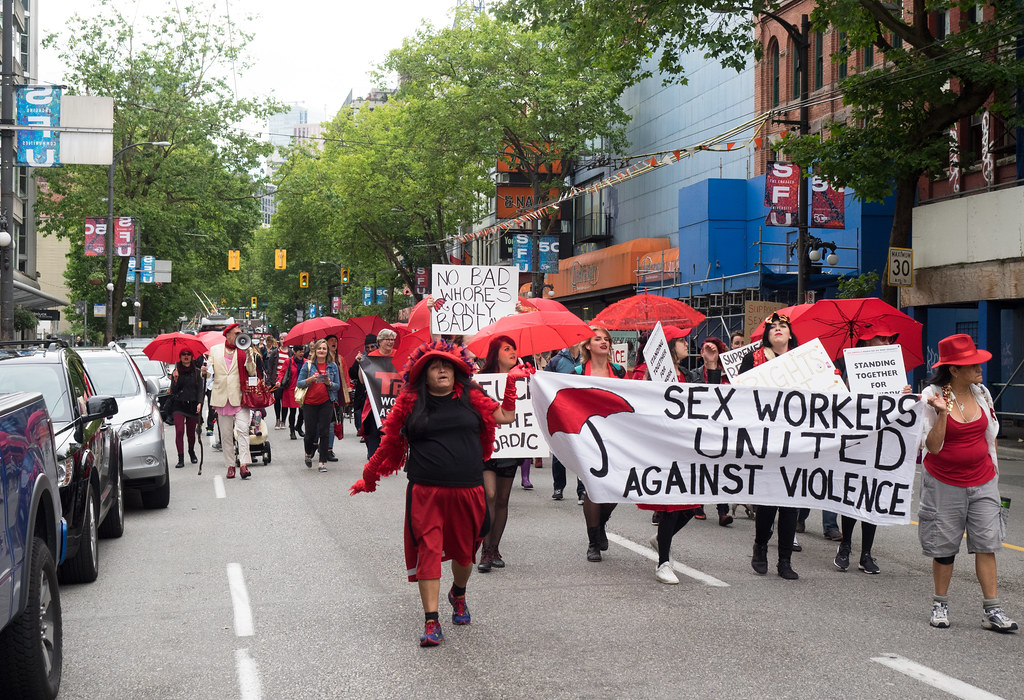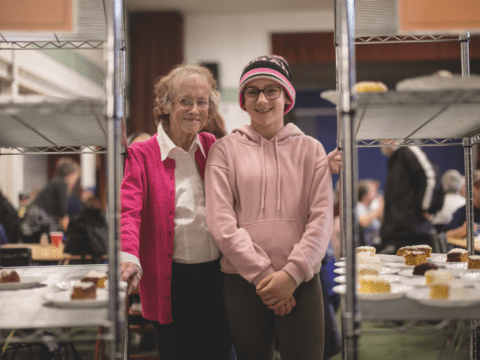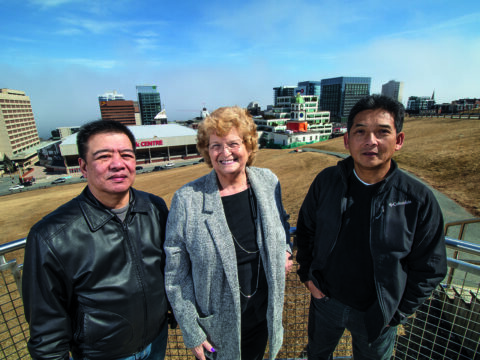When I was 18, I moved to Toronto after being gay-bashed in my hometown. I caught a bus in the middle of the night and went to the city because I knew it would be a safe haven for a young lesbian.
In Toronto’s LGBTQ2 community, I met some of the fiercest and most inspiring women I knew. They were mostly transgender, and working in the sex industry. Experts on safe sex, self-defence and the law, they were unapologetic about their work and they were supportive of each other. This was in sharp contrast with the image of sex workers I previously held: women forced into the trade by pimps, unable to make decisions for themselves.
You may unsubscribe from any of our newsletters at any time.
Some years later, when I found myself in financial hardship, I thought about these women. I was a university student and a harm reduction worker, but with housing costs skyrocketing in Toronto, I wasn’t making enough money to get by. I considered all my options. Then, I entered the sex industry.

Selling sex provided much- needed income. I was able to keep my housing and pay tuition. But it also provided so much more. Sex work gave me agency over my body and taught me to be proud of it. Previously, I had internalized the idea that my body would never be good enough, but once I became a sex worker, it became valuable. Before I entered the sex trade, I was employed in factories where my body was degraded through exposure to toxins, dangerous equipment and long hours. In the sex industry, my body felt appreciated and validated.
I no longer work in the industry, but I continue to advocate for sex worker rights. In particular, I campaign for the decriminalization of the entire sex industry.
More to read: Rev. Evan Smith on being a queer Indigenous Christian
In 2014, the federal government, following a directive from the Supreme Court of Canada, passed Bill C-36, which decriminalized the selling of sex itself, but not adjacent activities like purchasing sex, advertising sex or profiting indirectly from its sale. This is dangerous, making transactions less transparent. It also means sex workers are unable to hire body guards, because they can be charged with benefiting from the profits.
Criminalizing certain aspects of the sex industry also perpetuates stigma. After the laws changed in 2014, the Canadian Public Health Association noted in a paper that “social exclusion, stigma, and discrimination make it difficult for sex workers to access services, disclose their profession and receive equitable prevention services and treatment…. Taking steps to change the public perception of sex work could enable sex workers to better receive the health, social, and legal services … to which they have a right.”
Sex work can be dangerous and demeaning. But it can also be a safe, empowering and well-paying job for people like me. Decriminalizing the sex industry would ensure that the latter is more common than the former.
This column first appeared in the June 2019 issue of Broadview with the title “Worker safety.” For more of Broadview’s award-winning content, subscribe to the magazine today.















We in Canada legalized cannabis, thinking it would eliminate the black market (as did Colorado). Trouble is we find the black market is thriving because it’s cheaper than “legalized” cannabis.
Prostitution will be no different. It will not protect the prostitute from violence, health issues, unwanted pregnancy, exploitation or other stigmas associated with the “trade”, no matter what the advocates say.
As for the writer, I’m glad she thought having monetary things were more important than respect for her body, and honouring God. And yes, sex work is dangerous and demeaning.
Why are we so judgmental of others? Jesus taught us not to be but we tend to ignore that teaching. There are many occupations in which we, as human beings, are degraded. Soldiers are trained to kill other people; Police officers are taught to intimidate; Politicians lie to us over and over; Lawyers defend guilty people. Do these actions not demean those who perform them? Why then, do we put down those who choose to be sex workers? I’ve never figured out how it is that prostitution is not illegal but paying for sex is. If I am a prostitute or sex worker and what I am doing is not illegal, how then am I supposed to make a living if my client is not allowed, by law, to pay me?
Like marijuana legislation, sex work and the sex industry should be legalized and regulated for the protection of all those involved. The sex industry also serves a need. Many people have no other way, other than masturbation, to have sex and a sex worker fills a need without any marital or emotional obligations. As long as entering the sex industry is a voluntary choice, my feeling is that it needs to be legalized….and soon.
We cannot get away from the idea that God is BOTH love and just. My sarcasm above about being glad, should not have been used. Personally I think it’s quite sad for someone to reduce themselves to that kind of a monetary need.
Having said that: 1 Corinthians 6:15-16 – Do you not know that your bodies are members of Christ? Shall I then take the members of Christ and make them members of a harlot? Certainly not! Or do you not know that he who is joined to a harlot is one body with her? For “the two,” He says, “shall become one flesh.”
Makes it pretty clear what God says about prostitution. (note gender neutral, and it’s God’s word, not Paul or myself who is inspired to judge or condemn).
Funny how Paul also uses the same terminology as husband and wife to describe what happens between a “john” and a “prostitute”. For brevity here’s a good Forbes article against the legalization (copy and paste): https://www.forbes.com/sites/realspin/2016/10/17/why-legalizing-prostitution-may-not-work/#3245047b6678
Sex today is an obsession, the need for: being needed; instant gratification (which never seems to be satisfied); and finally, genuine love which cannot be demanded from another. Your argument above is totally out of context if a husband or wife thinks – a sex worker fills a need without any marital or emotional obligations.
First let me say that my sarcasm above, could be taken the wrong way. I’m not glad, but deeply saddened that one would enslave themselves for monetary gain. As far as being judgmental, I am not, in fact I could also quote Paul and truly mean “I am the chief of sinners”. God and His Word is judgmental, and as I can see it is very clear against selling yourself, because you belong to God and you do not have the right to sell something that is not yours, it has nothing to do with human legality. The human legality arose from the Biblical view of such a sin.
Again, there are many studies that show legalizing cannabis and prostitution have created more harm than good.